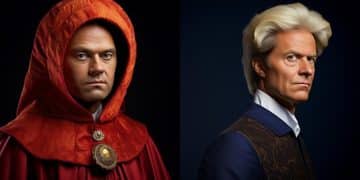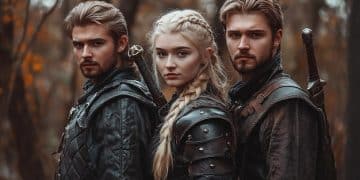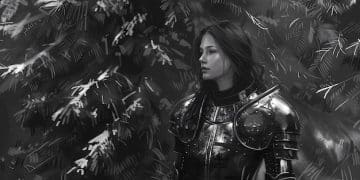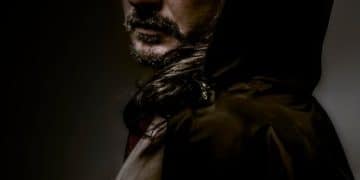The Witcher on Netflix: Key Differences from the Books You Should Know
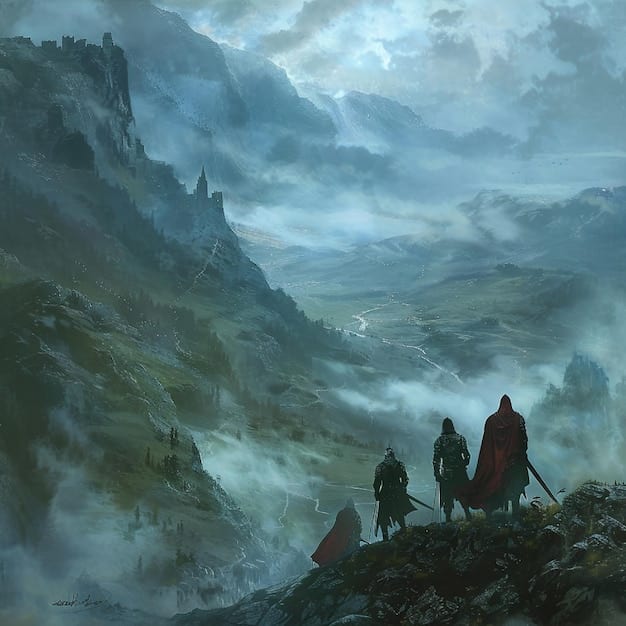
Netflix’s ‘The Witcher’ series, while captivating, takes creative liberties, diverging from Andrzej Sapkowski’s original books in character portrayals, plotlines, and world-building, which has sparked debate among fans.
The world of ‘The Witcher,’ brought to life by Andrzej Sapkowski, has captivated millions through its intricate storytelling, compelling characters, and rich lore. When Netflix adapted this beloved series of books into a television show, anticipation was high. However, as with any adaptation, changes were inevitable. Let’s explore Netflix’s ‘The Witcher’: How the Show’s Adaptations Differ from the Original Books.
Faithful Adaptation vs. Creative License
Adapting a book series as expansive and beloved as ‘The Witcher’ is no small feat. Showrunners often face a delicate balancing act between staying true to the source material and making changes to fit the constraints and possibilities of a new medium. While some adaptations aim for near-perfect replication, others take a more liberal approach.
The key question is: where does ‘The Witcher’ fall on this spectrum?
Changes in Character Arcs
One of the most significant departures from the books is in the portrayal and development of key characters. The Netflix series introduces changes to character timelines and motivations, altering the dynamics between Geralt, Yennefer, and Ciri.
- Yennefer’s Backstory: The series delves into Yennefer’s early life, providing a more detailed origin story than the books initially offer. This expanded backstory adds depth to her character but also alters certain aspects of her motivations and relationships.
- Ciri’s Development: Ciri’s journey and her connection to Geralt are streamlined in the show, which impacts the pacing of her character’s growth and her understanding of her powers.
- Geralt’s Stoicism: The show sometimes portrays Geralt as more emotionally expressive compared to his book counterpart, who is often characterized by a more reserved and cynical demeanor.
These character arc alterations have sparked discussions among fans, with some appreciating the added depth and others questioning the deviation from the original source material.
Ultimately, these decisions influence how viewers perceive the characters and their relationships.
Altered Plotlines and Story Arcs
Beyond character changes, the Netflix adaptation also introduces several alterations to the overarching plotlines and story arcs present in ‘The Witcher’ novels and short stories. These changes impact the overall narrative structure and the unfolding of key events.
The most jarring example is the changed timeline.
Key Plot Deviations
Certain events and storylines play out differently in the series, leading to significant divergences from the books’ established narrative. These deviations range from minor alterations to complete rewrites of key scenes.
- The Battle of Sodden Hill: The show greatly expands the role of mages in this battle, showcasing their powers and strategic importance but also changing the circumstances surrounding the fight.
- The Dragon Hunt: While the essence of the dragon hunt remains, certain characters and their motivations are altered, which impacts the outcome and the moral dilemmas presented.
- Political Intrigue: The political landscape and the power dynamics between various kingdoms are simplified in the show, which reduces the complexity of the world-building.
These plot deviations can both enhance the viewing experience by adding new twists and frustrate purists who prefer a faithful adaptation.
Nonetheless, they offer a fresh perspective on the stories.
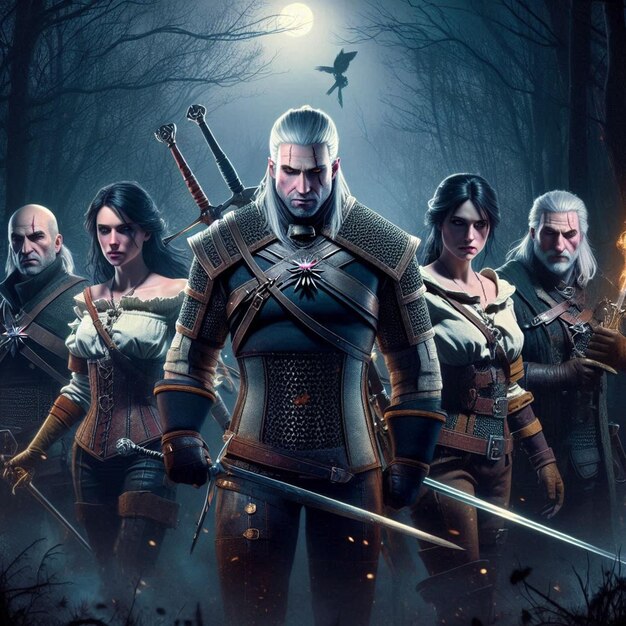
World-Building and Lore Differences
The intricate world-building and rich lore of ‘The Witcher’ are central to its appeal. However, the Netflix adaptation sometimes streamlines or alters aspects of this world, which may impact viewers’ understanding and immersion.
Adaptations can be tough, right?
Elaboration on key lore differences
The show introduces changes to the races, monsters and magic.
- Monster Lore: The series sometimes simplifies the origins and behaviors of the monsters Geralt encounters, reducing the depth of their ecological and cultural significance.
- Magical System: The workings of magic and the limitations placed on mages are portrayed differently, which can affect the perception of their power and the consequences of wielding it.
- Racial Dynamics: The complex relationships between humans, elves, and dwarves are sometimes oversimplified, which diminishes the nuances of their interactions and the underlying themes of prejudice and coexistence.
While these changes make the series more accessible to a wider audience, they can also dilute the intricate details that made the original world so compelling.
Again, this is a common issue with adaptations.
Fan Reactions and Critical Reception
The adaptations made in ‘The Witcher’ have elicited a wide range of responses from fans and critics alike. Some viewers appreciate the new interpretations and creative liberties, while others express disappointment over the deviations from the source material.
Let’s analyze the reasons.
Divergence of Opinions
Fan reactions vary widely depending on their expectations and their willingness to accept changes. Some appreciate the series’ attempt to expand on the characters and storylines, while others criticize what they perceive as a betrayal of the original vision.
Critical Acclaim vs. Fan Disappointment
The show has received mixed reviews, with some critics praising the performances and visual effects, while others point out the narrative inconsistencies and pacing issues. These mixed reviews often reflect the divide between those who approach the series as a standalone piece of entertainment and those who view it as an adaptation.
The Impact of Changes on the Series’ Legacy
The adaptations made in ‘The Witcher’ have the potential to shape the series’ legacy, influencing how it is remembered and perceived by future generations. Whether these changes enhance or detract from the overall appeal of ‘The Witcher’ remains to be seen.
No one really knows what the future implications will be.
Why Adaptations Differ
There are several reasons why adaptations often differ from their source material. These reasons range from practical considerations, such as budget and time constraints, to creative choices made by the showrunners and writers.
It’s important to keep this in mind when watching.
Production Constraints
Producing a television series involves numerous logistical and financial challenges. Adapting a complex book series like ‘The Witcher’ often requires streamlining certain elements to fit within the available resources and production schedule.
Creative Interpretations
Showrunners and writers bring their own unique perspectives and creative visions to the adaptation process. They may choose to emphasize certain themes, characters, or plotlines that resonate with them, leading to deviations from the source material.
Target Audience
Adaptations are often tailored to appeal to a wider audience than the original books. This may involve simplifying complex storylines, adding more action or romance, or making other changes to enhance the series’ mainstream appeal.
Knowing these factors will make you a more level-headed watcher.
The Future of ‘The Witcher’ Adaptation
As ‘The Witcher’ series continues, it remains to be seen how future seasons will address the existing adaptations and further develop the characters and storylines. The showrunners face the challenge of balancing the needs of a diverse audience, including both long-time fans and newcomers.
Hopefully, quality goes up.
Fan Hopes and Expectations
Fans of ‘The Witcher’ have expressed their hopes for future seasons, including requests for more faithful adaptations of specific books, deeper exploration of certain characters, and a more consistent tone and style.
Potential Course Corrections
The showrunners have the opportunity to address some of the criticisms and concerns raised by fans and critics. This may involve making course corrections in future seasons, such as revisiting certain storylines, re-examining character motivations, or adjusting the overall narrative structure.
The Lasting Impact of Adaptations
Ultimately, the adaptations made in ‘The Witcher’ will have a lasting impact on how the series is perceived and remembered. Whether these changes enhance or detract from the overall legacy of ‘The Witcher’ will depend on how skillfully they are handled in the seasons to come.
Only time will tell.
| Key Point | Brief Description |
|---|---|
| 🎭 Character Arcs | Characters like Yennefer have expanded backstories compared to the books. |
| 🐉 Plot Changes | Key events, like the Battle of Sodden Hill, unfold differently than in the books. |
| 🌍 World-Building | The intricate world-building of ‘The Witcher’ is sometimes simplified. |
| 🤔 Fan Reception | Adaptations made in ‘The Witcher’ have elicited a wide range of responses from fans. |
Frequently Asked Questions
▼
Netflix’s ‘The Witcher’ takes creative liberties. While it incorporates elements from the books, it often diverges in plot, character arcs, and world-building, resulting in a different viewing experience.
▼
Yennefer’s backstory is expanded, Ciri’s development is streamlined, and Geralt is sometimes portrayed as more emotionally expressive compared to their book counterparts.
▼
Key events like the Battle of Sodden Hill and the dragon hunt are altered. Additionally, the political intrigue is simplified, impacting the overall narrative structure of the series.
▼
Adaptations differ due to practical considerations like budget, creative interpretations by showrunners, and the need to appeal to a wider audience, which may involve simplifying complex storylines.
▼
Fans hope for more faithful adaptations of specific books, deeper exploration of certain characters, and a more consistent tone. Some also expect course corrections to address criticisms of earlier seasons.
Conclusion
In conclusion, while Netflix’s ‘The Witcher’ offers a visually stunning and action-packed adaptation of Andrzej Sapkowski’s beloved novels, it also diverges significantly from the source material in character portrayals, plotlines, and world-building. These changes have sparked debate among fans, with some appreciating the creative liberties and others lamenting the deviations from the original vision. As the series continues, it remains to be seen how future seasons will balance the needs of a diverse audience and shape the lasting legacy of ‘The Witcher’.
